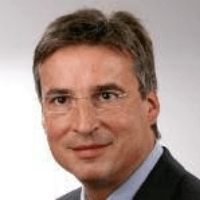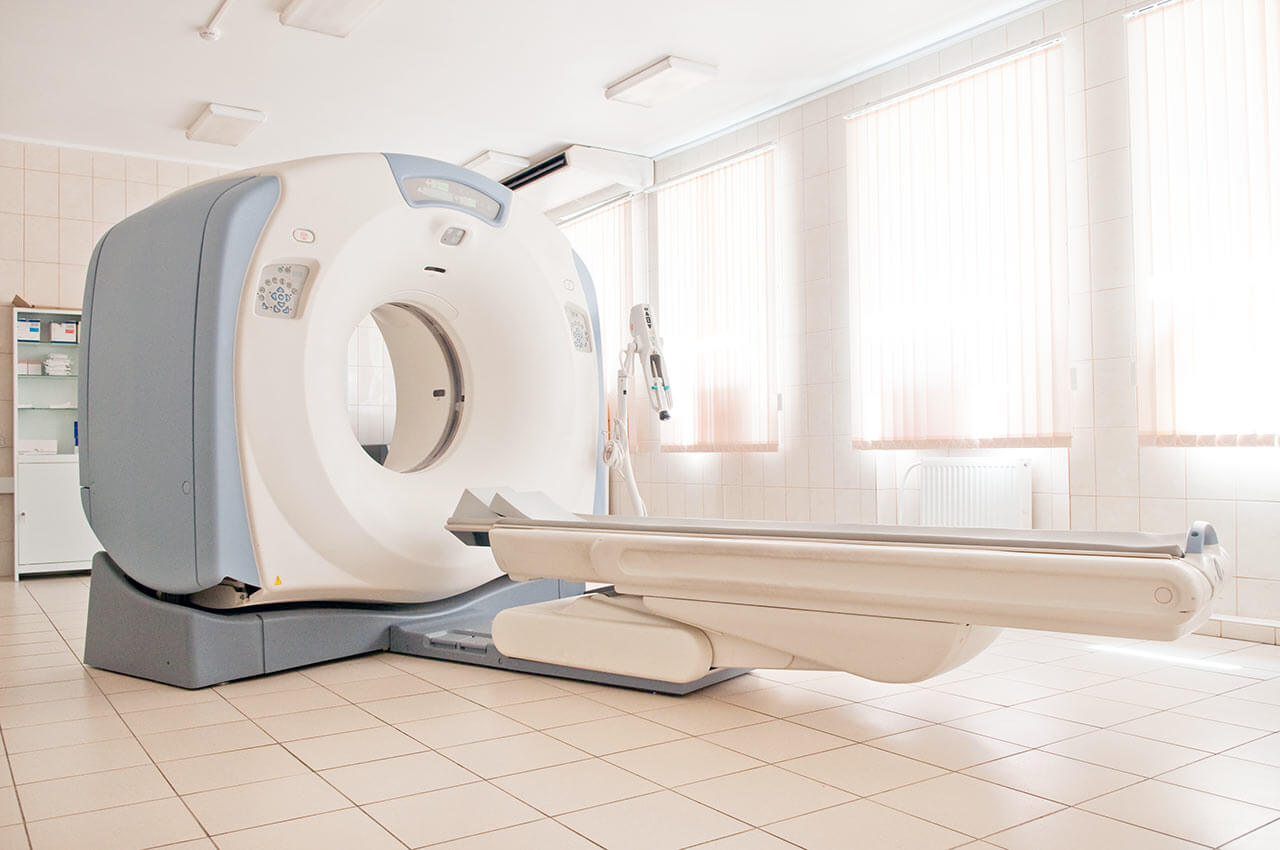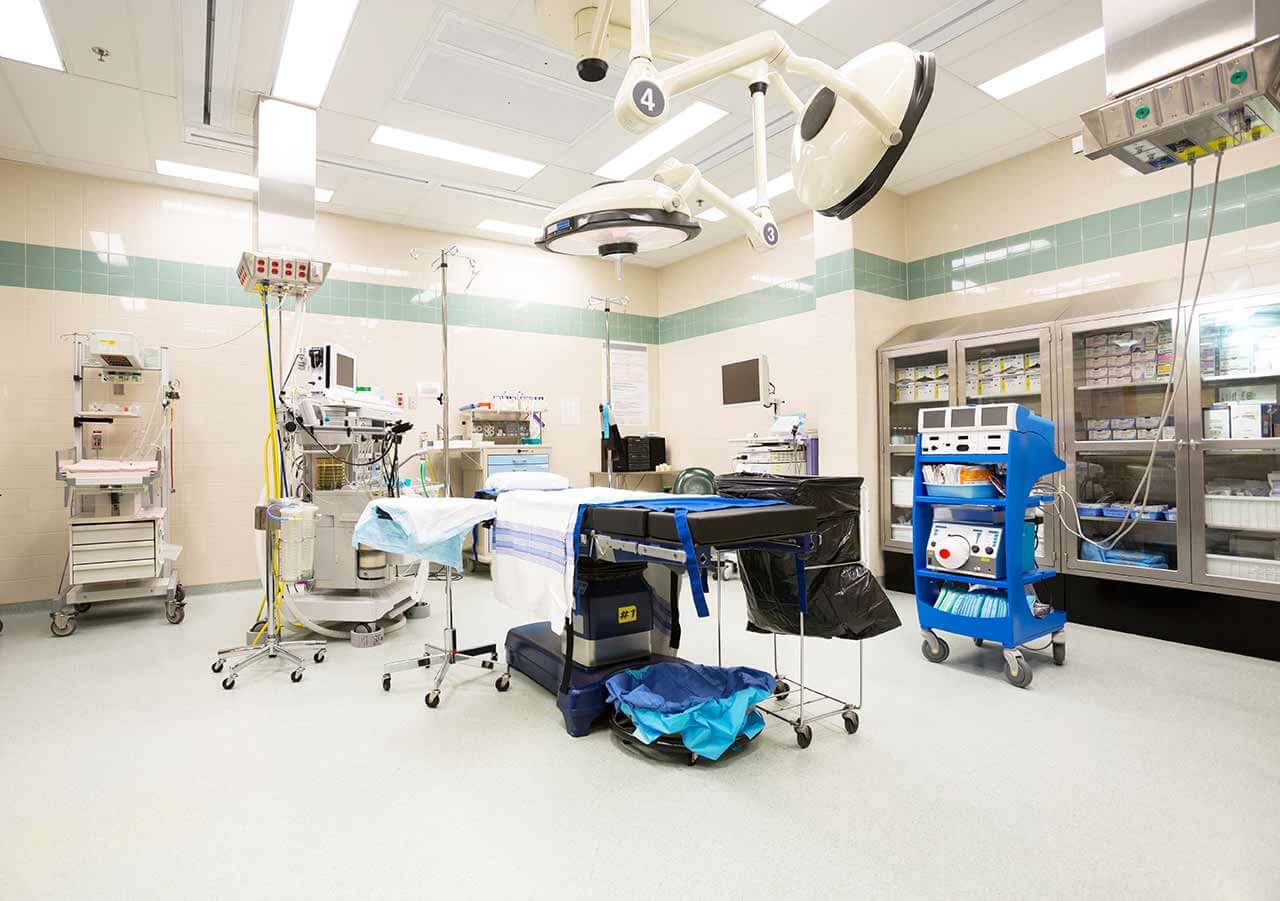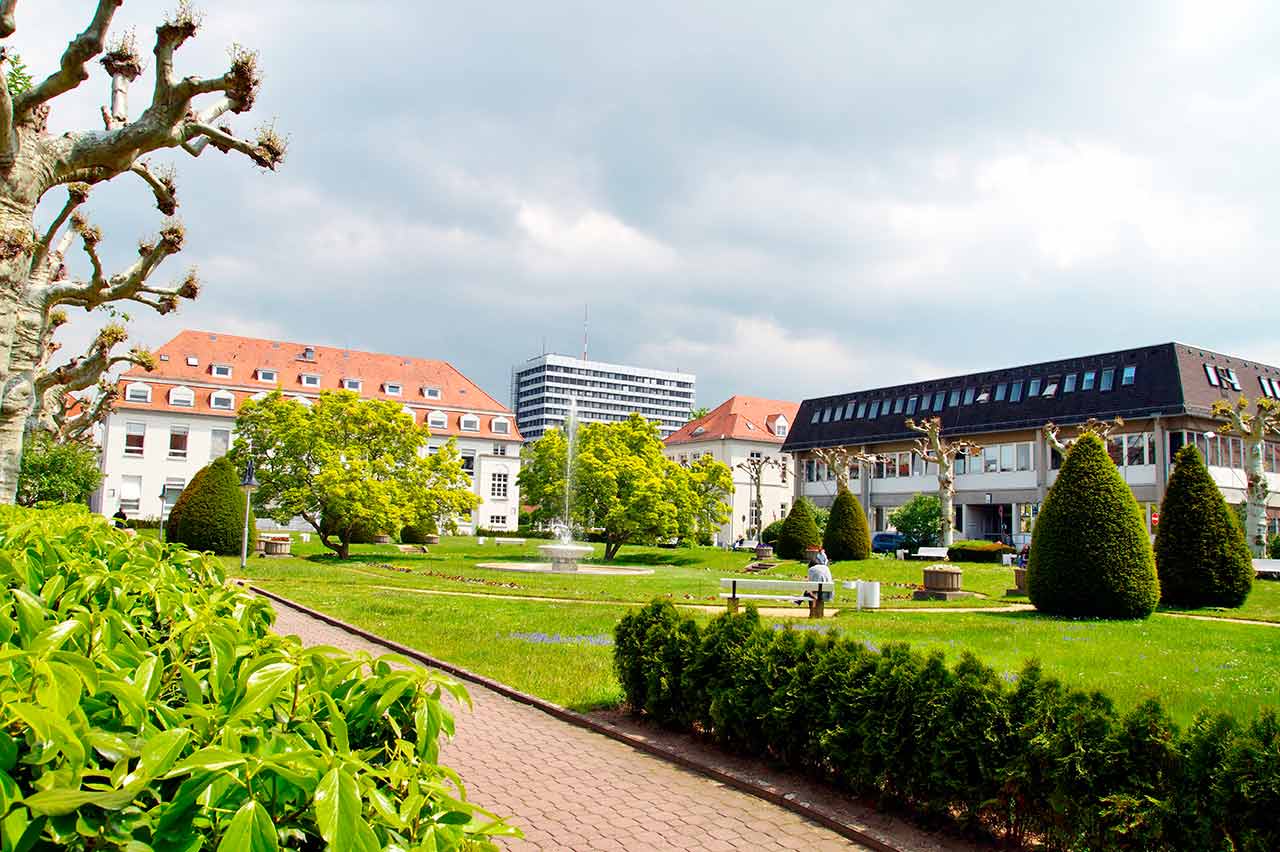
The program includes:
- Initial presentation in the clinic
- case history collection
- general clinical examination
- laboratory tests:
- complete blood count
- biochemical analysis of blood
- TSH-basal, fT3, fT4
- differential blood count
- inflammation indicators (CRP, ESR)
- indicators of blood coagulation
- CT/MRI scans of the whole body
- needle biopsy of the bone marrow with histological:
- cytochemistry
- immunocytology
- cytogenetics (Philadelphia
chromosome detection) - molecular biology
- biopsy and histological examination of CSF
- examination by experts of:
- cardiology
- otolaryngology
- immunology
- ophthalmology
- registration in the European bone marrow donor base
- conducting high-dose chemotherapy
- allogeneic bone marrow transplantation from
unrelated donor - the cost of blood products
- isolation by neutropenic precautions
- symptomatic treatment
- control examinations
- the cost of essential medicines and materials
- nursing services
- full hospital accommodation
- explanation of future recommendations
How program is carried out
During the first visit, the doctor will conduct a clinical examination and go through the results of the available diagnostic tests. After that, you will undergo the necessary additional examination, such as the assessment of liver and kidney function, ultrasound scan, CT scan and MRI.
Also, the doctor will conduct a bone marrow biopsy followed by cytological examination of the harvested material. This will help him to determine the histological features of your bone marrow (in particular, identify HLA system antigens) and select a suitable donor. The donor can be a family member or a person from the bone marrow registry. In the second case, the donor material is stored in a bone marrow bank.
Before the procedure, you will receive chemotherapy, if necessary in combination with radiation therapy. The course of chemo- or chemoradiation therapy lasts from 2 to 8 days.
The bone marrow transplant procedure is an intravenous infusion, i.e. the healthy bone marrow will be injected through a catheter, intravenously. You will stay in your room during the procedure. A bone marrow transplant is completely painless and does not require anesthesia.
During the period of healthy bone marrow engraftment, you will stay in a sterile ward. This is a necessary precaution because during this time your immune system is very weak and cannot withstand environmental pathogens. The risk of bleeding is also quite high, so you will be advised to avoid mechanical damage.
A relative or other close person may stay in the ward with you. You will not be allowed to go outside the department and leave your ward often. The rehabilitation period can last from 1 to 2 months.
When your complete blood count returns to normal, your doctor will schedule your discharge from the department. You will receive information about the rules that you will need to follow at home, the frequency and type of control examinations, and subsequent treatment measures. You will also receive a detailed medical report, which will reflect the entire course of treatment.
Required documents
- Medical records
- MRI/CT scan (not older than 3 months)
- Bone marrow biopsy results (if available)
Service
You may also book:
 BookingHealth Price from:
BookingHealth Price from:
About the department
The Department of Hematology, Internal Oncology, Stem Cell Transplantation and Hemostaseology at the University Hospital Mainz offers the full range of services in the field of diagnostics and treatment of systemic diseases with high malignancy degree, including diseases of blood, bone marrow and lymphatic system. Treatment involves the use of the very latest therapeutic techniques, including autologous and allogeneic stem cell transplantation. The Chief Physician of the department is Prof. Dr. med. Matthias Theobald.
The department offers the following range of diagnostics and treatment of hematologic diseases:
- Anemia and hematopoietic disorders with erythrocyte deficiency (erythropenia)
- Leukocyte deficiency (leukopenia) and changes in leukocyte formula
- Platelet deficiency (immune and thrombotic thrombocytopenic purpura)
- Myeloproliferative diseases
- Myelodysplastic syndrome
- Acute and chronic leukemia
- Lymphoproliferative disorders (Hodgkin's disease, non-Hodgkin's lymphoma)
- Multiple myeloma (plasmacytoma)
- And other blood diseases
An experienced team of the department ensures competent performance of all modern diagnostic and therapeutic procedures at the highest scientific level. The offered range of therapeutic services includes treatment methods, such as transfusion therapy, growth factor therapy, chemo-, immuno- and molecular targeted therapy, as well as prevention and treatment of infections. At the same time, autologous and allogeneic stem cell transplantation is often an important part of the hematologic diseases treatment.
Another major focus of the department is internal oncology, which deals with the diagnostics, treatment and follow-up examination of patients with malignant diseases of all organ systems.
The department offers treatment of the following oncological diseases:
- Lung tumors
- Connective tissue and bone tumors (sarcomas)
- Urinary tract tumors (kidney, bladder, ureter and urethra)
- Head and neck tumors
- Complex oncological diseases
- Counseling on breast carcinoma, CNS tumors and endocrine tumors
- As well as oncological diseases of other organs
In addition, in the field of hemostaseology, the department offers diagnostics and treatment of all congenital and acquired blood clotting disorders. These include both hemophilia A and B, von Willebrand disease, rare deficiencies of blood clotting factors and platelet function disorders (thrombocytopathy). There are all modern diagnostic and therapeutic options in the arsenal of the department. The substitution therapy is provided with the help of blood components and plasma in the day hospital. The treatment of complex blood clotting disorders is provided at the Comprehensive Care Center (CCC).
In general, the main clinical priorities of the department include the following medical fields:
- Hematology (diagnostics and treatment of all diseases of blood, bone marrow and lymphatic system)
- Stem cell transplantation (in various hematological diseases)
- Internal oncology (diagnostics and treatment of malignant diseases of all organ systems)
- Hemostaseology (diagnostics and treatment of all congenital and acquired blood clotting disorders)
- Interdisciplinary palliative care
Curriculum vitae
Education, Training and Professional Experience
- 1981 - 1987 Study of Chemistry, Human Biology and Medicine at the Universities of Giessen, Marburg, Mainz and Ulm.
- 1987 Medical examination and admission to medical practice.
- 1989 Doctoral thesis defence and the title of the Candidate of Medical Sciences (magna cum laude), Department of Internal Medicine, University of Ulm.
- 1987 - 1992 Research Fellow/Assistant Physician, Department of Internal Medicine III, University Hospital Ulm.
- 1992 - 1995 Scholarship and Research Fellow, Department of Immunology, Scripps Research Institute, La Jolla, California.
- 1995 - 1996 Research Fellow/Assistant Physician, Department of Hematology, Internal Oncology, Stem Cell Transplantation and Hemostaseology at the University Hospital Mainz.
- 1996 Certified Therapist.
- 1997 Invitation to the position of Associate Professor, Medical College of Wisconsin (MCW), Bone Marrow Transplantation Program and part-time Corresponding Member of the Blood Research Institute Milwaukee, Wisconsin.
- 1996 - 2006 Senior Physician, Department of Hematology, Internal Oncology, Stem Cell Transplantation and Hemostaseology at the University Hospital Mainz.
- 1998 Doctoral thesis defence, Venia Legendi, Internal Medicine, Faculty of Medicine, Johannes Gutenberg University Mainz.
- 2000 Specialization: Hematology and Internal Oncology.
- 2003 - 2006 Invitation to the post of (C3) University Professor, Professor of the Jose Carreras Foundation, Department of Internal Medicine, Faculty of Medicine, Johannes Gutenberg University Mainz.
- 2004 - 2006 Medical Director, Department of Hematology, Internal Oncology, Stem Cell Transplantation and Hemostaseology at the University Hospital Mainz.
- 2006 - 2009 Invitation to the position of Full Professor of Hematology, Head of the Department of Hematology, Van Creveld Hospital, University Medical Center of Utrecht, Netherlands, as well as the Department of Immunology.
- Since 2008 Board Committee Member of the Research Center for Immunology (FZI), Johannes Gutenberg University Mainz.
- Since 2009 Invitation to the position of (W3) University Professor in Hematology/Oncology, Head of the Department of Internal Medicine at the University Hospital Mainz.
- 2010 - 2013 Board Member of the Center for Thrombosis and Hemostasis (CTH) at the University Hospital Mainz.
- 2010 - 2013 Speaker of the Clinical Research Group KFO 183 "Optimized Allogeneic Lymphocyte Therapy" of the German Research Foundation (DFG) at the University Hospital Mainz.
- 2011 - 2016 Board Speaker of the Mainz University Cancer Center (UCT) at the University Hospital Mainz.
- Since 2013 Representative of the German Society of Hematology and Oncology (DGHO) in the Commission "Clinical Trials in Oncology" of the German Cancer Society (DKG).
- Since 2013 Speaker of the Mainz medical staff in the German Consortium for Translational Cancer Research (DKTK), Frankfurt/Mainz.
- Since 2014 Representative of the German Society of Hematology and Oncology (DGHO) at the German Society of Internal Medicine (DGIM).
- Since 2016 Representative of the German Society of Hematology and Oncology (DGHO) at the Scientific Council of the Paul Ehrlich Institut in "Tissue Engineering Technology".
- Since 2016 Head of the University Cancer Center (UCT) at the University Hospital Mainz.
Membership in the Scientific Communities (selectively)
- German Society of Hematology and Oncology.
- German Society for Internal Medicine.
- German Society for Bone Marrow and Stem Cell Transplantation.
- European Group for Blood and Marrow Transplantation.
- European Hematology Association.
- American Society of Hematology.
Photo of the doctor: (c) Universitätsmedizin der Johannes Gutenberg-Universität Mainz
About hospital
The University Hospital Mainz is one of the best maximum care medical facilities in Germany and an internationally recognized scientific center. There are more than 60 departments and institutes, which represent all fields of modern medicine. The hospital serves more than 68,000 inpatients and more than 273,000 outpatients annually, which testifies to the excellent reputation of this medical institution.
The key to the successful clinical practice is also a highly qualified medical staff, which consists of 7.800 employees from various fields. The doctors of the hospital are convinced that each clinical case requires an individual approach, therefore, they devote much time to consultations and communication with patients. The main goal of all hospital employees is to provide an optimal medical care based on the use of the state-of-art diagnostic and therapeutic measures, as well as the introduction of the latest scientific achievements into the medical practice.
The best interns and assistant physicians are trained here. The world-famous leading physicians of the hospital share their long experience and professional skills. Naturally, an integral part of the university hospital work is research, thanks to which many innovative possibilities in the field of diagnostics and therapy have been developed.
Photo: (c) depositphotos
Accommodation in hospital
Patients rooms
The patients of the University Hospital Mainz live in bright, spacious and comfortable rooms. The patient rooms are equipped with modern electronically adjustable beds, which at the touch of a button automatically assume a specified position. Also, there is a TV and a telephone in the patient rooms. To use them, it is necessary to get a prepaid card (in vending machines at the entrance to the hospital). The use of a TV is free, but the patient will need headphones. Telephone calls are made for a fixed fee, which will be withdrawn from the prepaid card at discharge from the hospital. Also, each patient room is equipped with an ensuite bathroom with shower, washbasin and toilet.
Meals and Menus
The patients of the hospital are offered a tasty and balanced three meals a day: breakfast, lunch and dinner. The menu also includes vegetarian and dietary dishes. In addition, for both patients and their visitors there are available cafeterias and bakeries, where one can buy baked goods, snacks, hot and cold drinks.
Further details
Standard rooms include:





